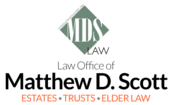What you need from your estate plan may be very different from what your siblings or neighbors require from their documents. Everyone’s wishes regarding their legacies will be different, and your personal relationships, as well as your resources, are naturally different from those of other people as well.
Estate planning is not a process with one solution that works for everyone. However, there is a basic checklist of estate planning needs that can help guide just about anyone concerned about their legacy or how vulnerable they may be later in life.
The checklist below touches on all of the most important concerns that you may need to address.
1. Provide for those who depend on you
Maybe you have minor children, which means you need a will that names a guardian for them as well as a means of providing resources for them if anything were to happen to you. Maybe you have a business in your name that will need new management to take over in the event of your death or incapacitation.
You might even have pets that you want to provide resources for after you die. Identifying those who depend on you establishes what documents you need to include in your estate plan, such as wills and trusts.
2. Address your most valuable assets
Much of estate planning has to do with your property, so you need to reflect on your resources and who you would like to have inherit those assets. From real estate and investment accounts to personal collections and items with emotional value but little financial worth, there may be dozens of assets that you need to individually address in your estate plan.
3. Consider your medical future
Many people include Advanced directives or living wills in their estate plans. You never know when some kind of emergency might leave you unable to speak on your own behalf. Thinking about it what kind of treatment you would want to receive in an emergency and including clear instructions about those wishes can be a smart move.
You may also want to include powers of attorney to give someone else that you trust the authority to pay your bills or engage in medical decision-making on your behalf. Finally, advance medical planning may also involve planning to qualify for Medicaid benefits when you get older.
4. Address debts and taxes
Maybe your estate is very large and at risk of estate taxes. Perhaps you have real property that you want to transfer to beneficiaries that could trigger capital gains taxes if you don’t plan things carefully. You may also need to consider what might happen to your property if you accrue debt later in life. Estate planning often involves looking at retirement resources and planning for the possibility of financial hardship in the future.
Addressing all of these four concerns as you start creating or updating your estate plan will help you create documents that very accurately and thoroughly reflect your current and potential future needs.
